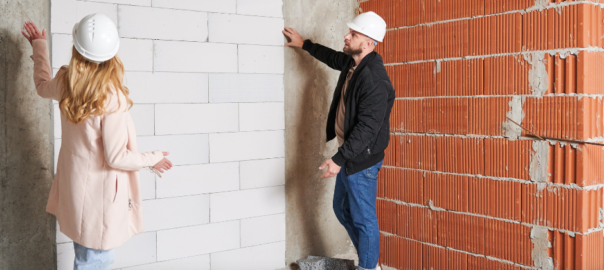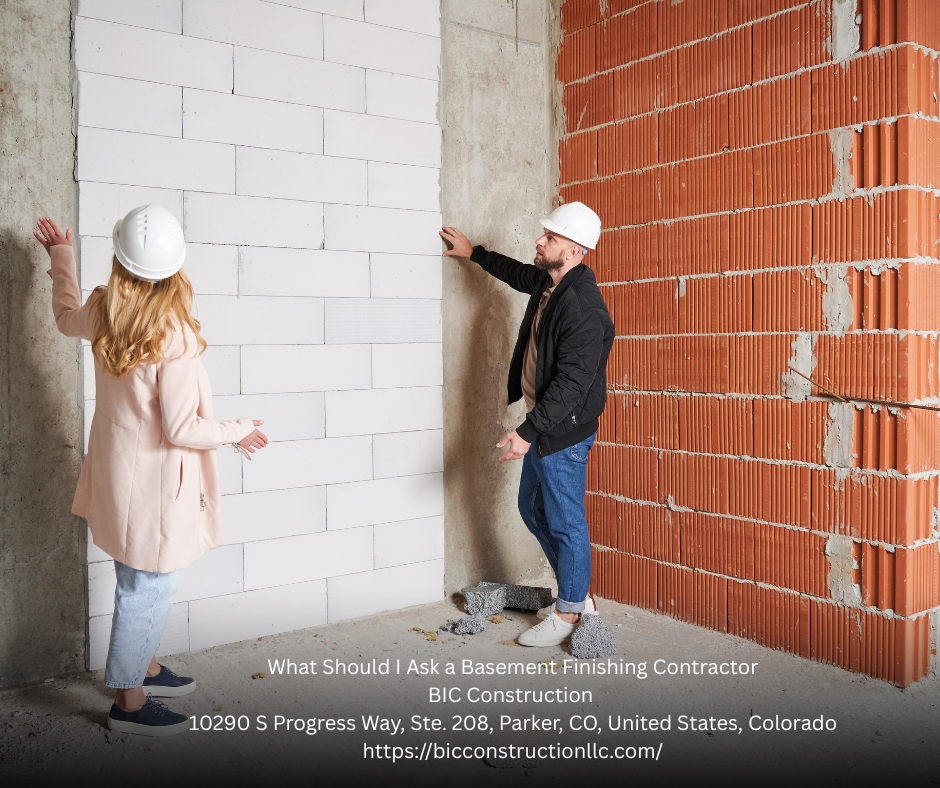When hiring a basement finishing contractor, ask about their experience and past projects to gauge their expertise. Request references and examples of their work. Be clear on their design process and how much input you’ll have. Get an estimated timeline for completion and clarify the specifics of pricing, including any potential extra costs. Don’t forget to ask about warranty details to protect your investment. There’s more to explore to guarantee your project runs smoothly.
What Is Your Experience With Basement Finishing Projects?
When you’re considering a basement finishing contractor, it’s important to ask if they’ve handled projects similar to yours. Their experience can give you a better idea of how they manage timelines, materials, and design choices.
You can also take a look at companies that provide full basement finishing services to see examples of completed work and the kinds of projects they usually take on. This helps you ask more focused questions about design styles, space planning, and how flexible they are with custom requests.
By learning about their past work, you’ll be in a better position to decide if they’re the right fit for your basement project.
Can You Provide References or Examples of Past Work?
How can you be sure a basement finishing contractor is right for you? One of the best ways is to ask for references or examples of their past work.
A reliable contractor should be keen to share testimonials from satisfied clients or showcase completed projects. This not only gives you insight into their craftsmanship but also helps you gauge their reliability and professionalism.
Don’t hesitate to contact previous clients to inquire about their experiences. Ask about timelines, communication, and the overall quality of work.
Additionally, reviewing a portfolio of their completed projects can spark ideas about your own basement. The more information you gather, the more confident you’ll feel in your decision to hire the right contractor for your basement finishing project.
What Is Your Design Process and How Involved Will I Be?
Understanding your contractor’s design process is essential for a successful basement finish.
You’ll want to know how they handle the initial consultation, collaborate on design ideas, and manage revisions. This will help you gauge how involved you’ll be in shaping your space.
Initial Consultation Overview
The initial consultation is where your vision meets your contractor’s process. You’ll discuss your goals, budget, and style preferences. This is also when the contractor should explain their timeline, scope of work, and how decisions will be made.
Expect to see examples of past projects and learn how they’ll approach your basement. Make sure to ask how involved you’ll be throughout the project.
Clear communication during this stage lays the groundwork for a smooth design experience that aligns with your expectations.
Design Collaboration Methods
During the design phase, your contractor should involve you in key decisions. Ask how they share ideas—some use 3D visuals or inspiration boards to guide choices. See if they’re open to brainstorming sessions or adjusting plans as your ideas evolve.
They should welcome your feedback and clearly explain how suggestions are reviewed. Also, find out how often you’ll meet to check progress. Good collaboration means your preferences shape the final design, rather than being an afterthought.
Revision and Approval Process
Revisions are part of any design process, so ask how changes are handled. Your contractor should provide drafts and allow time for your feedback. Clarify how many revisions are included and whether updates are visualized through renderings or sketches.
You should also confirm the timeline for approvals, so decisions don’t delay the project. Being part of this process helps avoid mistakes and keeps the design aligned with your needs. A contractor who values your input will make the experience much smoother.
What Is the Estimated Timeline for Completion?
Ask your contractor for a clear estimate of how long the basement finishing will take. Most projects last a few weeks to a few months, depending on the size and details. Each step—framing, electrical, plumbing, and finishes—takes time.
Delays can happen, especially with materials or inspections, so ask how they handle setbacks. Knowing the schedule helps you prepare and manage your expectations. You should also ask how often they update timelines and what you can do to avoid delays. Staying informed helps the project move along with fewer surprises.
How Do You Handle Permits and Local Building Codes?
Your contractor should handle all permits and follow local building codes. Ask who applies for the permits and how they stay updated on rules in your area.
A reliable contractor knows the inspection process and prepares your project to meet each stage’s requirements. This avoids delays or fines. It’s also important to ask how they track changes in building codes.
Make sure they communicate clearly about what’s needed and when. With the right knowledge and planning, your project can move forward without legal or safety issues slowing things down.
What Is Included in Your Pricing and Are There Any Potential Extra Costs?
Before diving into your basement finishing project, it’s important to understand exactly what’s included in the contractor’s pricing, as unexpected costs can arise.
Ask the contractor to break down their estimate. You’ll want to know if labor, materials, and any permits are included. Clarify whether the price covers everything from insulation to drywall installation.
Also, inquire about potential extra costs. For instance, if you need to relocate plumbing or electrical systems, that mightn’t be included in the initial quote.
It’s wise to ask about unforeseen expenses that could pop up during the project, like moisture issues or structural repairs. Knowing these details helps you budget accurately and avoid financial surprises down the line.
Frequently Asked Questions
Will You Handle All Subcontractors or Will I Need To?
You should clarify whether they’ll manage all subcontractors or if you’ll need to coordinate them. It’s essential to know this upfront, as it affects project management, timelines, and your overall involvement in the process.
What Steps Do You Take to Minimize Disruption During the Project?
To minimize disruption during your project, you’ll communicate clearly, set up barriers, schedule work during convenient hours, and keep the workspace organized. You’ll also guarantee minimal noise and dust to maintain your daily routine.
How Will You Communicate Progress Updates Throughout the Project?
You’ll want clear communication during your project. Expect regular updates through emails or calls, ensuring you’re informed about progress, any changes, and timelines. This keeps you involved and reassured throughout the entire process.


